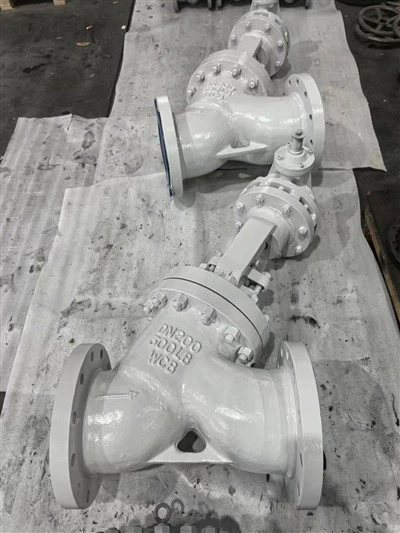Hey there! As a forging valve supplier, I often get asked if forging valves can be used in oil pipelines. Well, let's dive right into this topic and break it down.
First off, what are forging valves? Forging valves are made through a forging process, which involves shaping metal by applying compressive forces. This process results in valves that are generally stronger and more durable compared to those made by other methods like casting. They can withstand high pressure and temperature, which are two crucial factors when it comes to oil pipelines.


Oil pipelines operate in some pretty harsh conditions. The oil flowing through them can be at high temperatures, especially when it's being transported from deep - sea oil wells or high - temperature oil fields. Also, the pressure inside the pipelines can be extremely high, as the oil needs to be pushed through long distances. Forging valves are well - suited to handle these conditions. Their strong structure allows them to resist deformation under high pressure. And because they are made from high - quality metals that are carefully forged, they can maintain their integrity even at elevated temperatures.
Let's talk about the different types of forging valves. There are Link: Large Size Of Forged Valve and Link: Small Size Of Forged Valve. Large - size forging valves are typically used in main oil pipelines where the flow rate is high and the pressure is substantial. These valves need to be able to control large volumes of oil, and their robust construction makes them ideal for this job. For example, in a large - scale oil transportation pipeline that spans hundreds of kilometers, large - size forging valves can be used at key junctions and pumping stations to regulate the flow and pressure.
On the other hand, small - size forging valves have their own niche in oil pipelines. They are often used in auxiliary systems, such as in pressure relief lines, sampling lines, or in control systems where precise flow control is required. These valves are more compact and can be easily installed in tight spaces. They also offer excellent sealing performance, which is crucial to prevent any oil leakage, especially in sensitive areas of the pipeline system.
Another important aspect is the material of forging valves. Most forging valves used in oil pipelines are made from materials like carbon steel, stainless steel, or alloy steel. Carbon steel is a popular choice because it is relatively inexpensive and has good strength. It can handle normal operating conditions in many oil pipelines. Stainless steel, on the other hand, is corrosion - resistant, which is a big plus in oil pipelines where the oil may contain corrosive substances like sulfur compounds. Alloy steel combines the best of both worlds, offering high strength and corrosion resistance, making it suitable for the most demanding oil pipeline applications.
However, using forging valves in oil pipelines isn't without its challenges. One of the main challenges is the cost. Forging valves are generally more expensive than other types of valves due to the complex forging process and the use of high - quality materials. But when you consider the long - term benefits, such as reduced maintenance costs and increased safety, the initial investment can be well worth it.
Another challenge is the installation and maintenance. Forging valves need to be installed correctly to ensure proper functioning. Any misalignment during installation can lead to premature wear and tear, and even valve failure. Regular maintenance is also essential to keep the valves in good working condition. This includes inspecting for leaks, checking the valve seats for wear, and lubricating moving parts.
Now, let's talk about safety. Safety is of utmost importance in oil pipelines, and forging valves play a crucial role in ensuring it. Their reliable performance helps prevent oil spills, which can have catastrophic environmental and economic consequences. For example, in the event of a sudden pressure surge in the pipeline, a well - designed forging valve can quickly shut off the flow, preventing damage to the pipeline and potential spills.
In addition to safety, forging valves also contribute to the efficiency of oil pipelines. By providing precise flow control, they help optimize the transportation of oil. This means that more oil can be transported with less energy consumption, which is not only good for the environment but also for the bottom line of oil companies.
So, can forging valves be used in oil pipelines? The answer is a resounding yes. They offer the strength, durability, and performance needed to handle the harsh conditions of oil pipeline operations. Whether it's large - size valves for main pipelines or small - size valves for auxiliary systems, forging valves are a reliable choice.
If you're in the oil pipeline business and are looking for high - quality forging valves, I'd love to have a chat with you. We can discuss your specific requirements and find the best valve solutions for your project. Whether you need valves for a new pipeline construction or for the maintenance of an existing one, we've got you covered.
References
- ASME B16.34 - Valves - Flanged, Threaded, and Welding End
- API 6D - Pipeline Valves - Specification for Pipeline Valves





